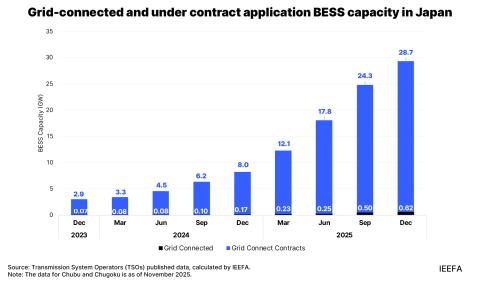Universal ownership: Decarbonisation in a hostile engagement environment
Download Full Report

Key Findings
Constrained by weak tools and outdated product development that focuses too narrowly on short-term returns, corporate engagement alone cannot achieve the wider decarbonisation of markets.
The recent weaponisation of antitrust and aggressive silencing tactics from investee companies underscores the need for universal owners to be more pragmatic.
Universal owners must urgently collaborate with sovereign stakeholders, push for the rapid adoption of carbon markets, make efforts to stymy climate lobbying, leverage relationships with banks and incorporate divestment into their stewardship toolset.
IEEFA diverges most from existing frameworks by recommending that universal owners consider making bolder allocations to “systemic funds” that specifically seek decarbonisation over short-term returns.
Executive Summary
Universal owners hold long-term investment horizons and such broad economic exposures that they effectively own a small but broadly representative slice of the global economy. It follows that they have a vested interest in the long-term health of global capital markets as a whole because their own returns are largely tied to overall market movements. Universal owners are unable to avoid risks that affect the entirety of the economic system to varying degrees, meaning they must seek to reduce “systemic risk” to protect beta (market) returns. This will often mean addressing the externalities caused by entities held within the universal owner’s own portfolio.
The most foreseeable and potentially damaging systemic risk is of course climate change. Even by making relatively conservative choices in its modelling, a recent study by EDHEC predicts global equity values to compress by about 40%, should we not enact more robust abatement policies and better direct capital to combat climate change. This compares to losses of just 5-10% if prompt and robust abatement action is taken along a two-degree, Paris-aligned pathway. To minimise climate change as a systemic risk, active owners have almost exclusively relied on corporate engagement to drive decarbonisation at investee companies. Yet investors are increasingly questioning whether they can move the needle through discourse and voting. This is particularly true as it relates to engagement with the fossil fuel industry, which continues to disproportionately channel capex into exploration for new reserves, increase production targets and walk back emissions promises.
As the limitations of corporate engagement become more apparent, so too do the realities of the hostile conditions in which stewardship teams operate. The recent weaponisation of antitrust rhetoric in the U.S., coupled with aggressive silencing tactics from investee companies, underscores the need for universal owners to be more pragmatic in their approaches. Universal owners must supplement their active ownership strategies to encourage systemic decarbonisation. To this end, IEEFA proposes several key actions that universal owners should incorporate into their active ownership frameworks, if they are not doing so already:
- Collaborate with sovereign stakeholders: Help from governments and policymakers will be essential. These stakeholders are uniquely positioned to create the enabling environment for private sector transition. They also hold controlling interests in state-owned enterprises (and operate state-run industry), which today contribute more to global carbon emissions than investor-owned entities. Far from being bystanders, active owners must join sovereign engagement programmes, such as that piloted by the Principles for Responsible Investment, or otherwise seek to work closely with governments, policymakers and regulators to expedite wider decarbonisation.
- Endorse carbon markets: Universal owners must advocate for the adoption of stronger carbon pricing mechanisms and encourage their investee companies to do the same. Schemes that internalise the costs of emissions have a strong history of promoting rapid behavioural change.
- Expose and stymy climate lobbying: Engagement with policymakers will be key. Investee companies must be prevented from undermining efforts in this space through their own climate lobbying agendas. Universal owners must in the first instance demand transparency with a view to immediately halting investee company activity that contradicts stated transition goals.
- Leverage relationships with banks: Banks remain pivotal in financing the transition to a low-carbon economy. In many cases, they continue to facilitate fossil fuel expansion, which is at odds with recommendations from the International Energy Agency. Universal owners should make assessments based on banks’ wider financing activities and look to reduce or increase their use of ancillary bank services, as appropriate. If well-communicated, stewardship outcomes can also raise public awareness of banking practices, both good and bad.
- Keep divestment options open: Far from being solely an exercise in idiosyncratic risk reduction, divestment in secondary markets can bring systemic benefit and should be viewed as symbiotic to engagement. Divestment policies guided by “systemically adjusted” valuation methods (as outlined in previous IEEFA research would allow for capital to be reallocated to more systemically beneficial investments that often hold similar risk/return profiles.
Finally, IEEFA would argue that action on systemic risk reduction is constrained by traditional product development that is outdated in its overly narrow focus on short-term return generation. This results in myopic interpretations of fiduciary duty even for impact products, which in turn limits how forcefully investors can engage with their investee companies and prevents capital allocation to the areas of the economy that need it the most. In perhaps the largest departure from existing universal ownership frameworks, IEEFA recommends the establishment of “systemic funds” to explicitly target decarbonisation above the need for maximised short-term return generation.
To be clear, investing in decarbonisation is not inherently concessionary, yet by setting fund performance objectives as above-market return (over periods as short as five years), potentially transformative decarbonisation opportunities are likely being systematically overlooked. Viewed only at the level of the fund, systemic funds may appear unappealing; viewed at the universal owner level, the case for such vehicles is clear. As portfolio values are dragged down by ever-more obvious physical damage, asset owners will increasingly seek solutions that might preserve long-term wealth. This makes systemic funds a potentially significant growth market. If carefully constructed—to avoid free-rider and liquidity problems—as a supplement to existing active ownership, systemic funds provide a robust solution to an opportunity set currently inadequate for universal owners.















